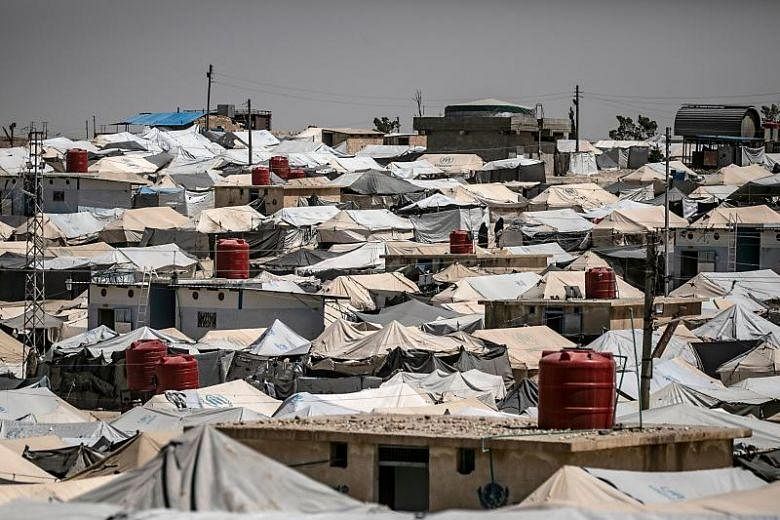Indonesia may be made to choose between being humane and protecting its security as it considers whether to take back more than 100 of its citizens believed to be family members of Indonesians who joined the militant group Islamic State in Iraq and Syria (ISIS).
These Indonesians have been stranded in a refugee camp in Syria since the failed caliphate was ousted by US-led coalition forces in March.
Indonesia's counter-terrorism agency BNPT chief, Inspector-General Suhardi Alius, said on Monday night that Indonesia is open to letting all of them return, but was quick to set a condition: Each must first be thoroughly investigated in Syria, as they have reportedly burned their Indonesian passports and all forms of identification.
The government has set up a task force at the political, legal and security affairs coordinating ministry that will decide Indonesia's stance on this, but no timeframe has been set on when a decision would be taken.
"I will propose in the task force's meeting that we go and do our assessment there, so we know the clusters of networks (they were supported by)... (and) how radical they are," General Suhardi said at a discussion organised by Indonesia's Tempo magazine.
His remarks in Monday night's discussion came amid heated debate among Indonesians over whether to receive these Indonesians back home, following reports that the group of mostly women and children were at the Al-Hol refugee camp in north-eastern Syria, where they went to after ISIS lost Baghouz, its last stronghold in the country.
The Syrian authorities are prosecuting the men who were allegedly involved in battles as combatants, General Suhardi said.
"If we do decide to accept them back home, we must measure the risks. Remember, it's not only about bringing people home, but also about how we can neutralise their radical thinking and what the treatment would be," he said.
General Suhardi admitted that in Indonesia's experience with terrorism, women could be as radical and motivated as men, citing a police raid in March in Sibolga, North Sumatra, on a house known to be housing an extremist couple. The man surrendered, while the woman steadfastly resisted police orders before she blew herself up inside the house.
Another example, said General Suhardi, was that of former Indonesian civil servant Dwi Djoko Wiwoho, who was a director in the Batam free trade zone authority office. The 51-year-old left for Syria in 2016 to join ISIS, because his teenage daughter and wife insisted on going.
They went with an extended family of 18 people, but managed to return after two years as they could not cope with the rough living conditions in Raqqa.
"A young child in this family told me: I was a top grader in school before we went to Syria. Now, I want to be a top student again," General Suhardi said.
Several of the 18-member extended family are now active as deradicalisation speakers sharing their gloomy experience.
Another speaker at the discussion, Dr Sri Yunanto, an expert adviser to the political, legal and security coordinating minister, said the anticipated security concerns of neighbouring countries would be among the factors Indonesia will consider.
Deradicalisation expert Noor Huda Ismail, who was also at the discussion, noted: "People were not born terrorists. They went through a long process. Some of them in fact want to 'retire' from being terrorists, but in most cases their communities are not ready to accept them."

